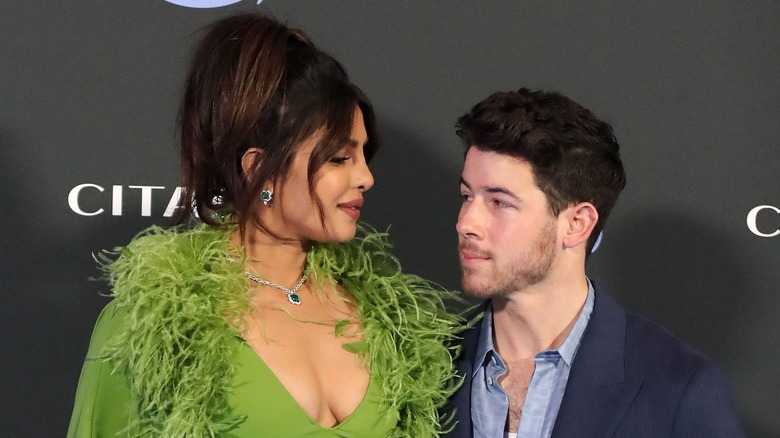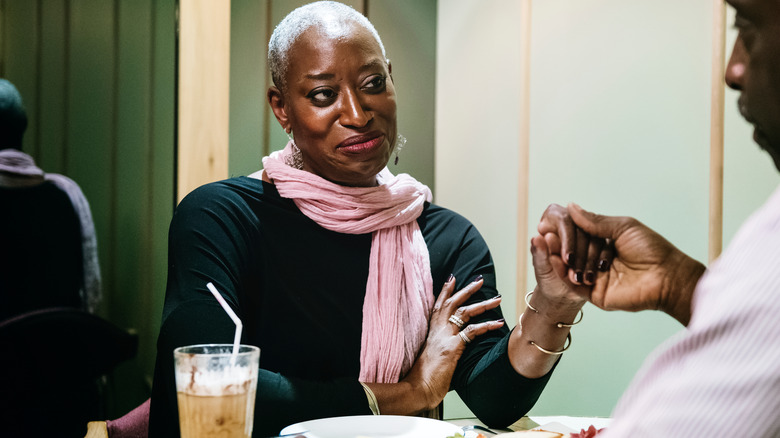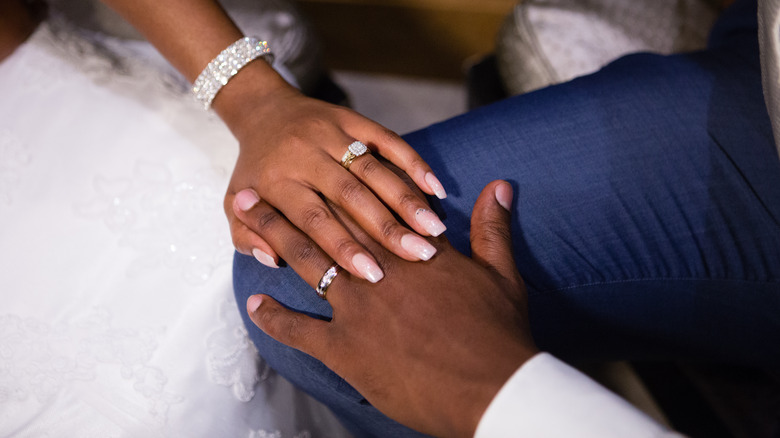Why Some Women Prefer Dating Younger Men
Relationships are changing rapidly, with old-fashioned ideas of love evolving and people becoming more open-minded. One trend is the growing number of women who date younger men, breaking down stereotypes and redefining what we consider "normal" in romance. Many famous personalities have been breaking stereotypes by being in relationships with partners who are younger or older than them.
Although her husband, Ben Affleck, is just three years younger, Jennifer Lopez has dated several younger men, including Drake and Casper Smart, 17 and 18 years her junior, respectively. In an interview with Ellen DeGeneres, she emphasized that age is not a deciding factor regarding her dating choices. "It's not about [being with someone younger,] it's simply about meeting people and if I like them, I go out with them," she said (via Vanity Fair).
Priyanka Chopra, who is 10 years older than her husband, Nick Jonas, expressed awe at the double standards in an interview with InStyle (via E! News), stating, "I find it really amazing when you flip it and the guy is older, no one cares and actually people like it." And the widely admired couple Lisa Bonet and Jason Momoa, though no longer together, garnered attention for their unconventional age dynamic, contributing to the broader conversation on love and partnership.
By digging into these scientific theories and examining the changing landscape of gender roles, we can better understand what motivates women to choose younger partners.
Evolutionary influences and biological factors affecting preference for younger partners
Evolutionary psychology and biological factors can influence relationship dynamics. A 2021 study published in Sexuality & Culture suggests that women who prefer dating younger men may do so because of their quest for optimal genetic fitness, vitality, and fertility. According to the study, women's preferences in mates have evolved to prioritize characteristics that enhance reproductive success. Younger partners may have higher reproductive likeliness, aligning with the subconscious biological imperative to select mates with the highest potential for successful reproduction.
A research report published in Biological Psychology in 2020 highlighted that hormonal changes in women as they age can play a vital role in shaping their attraction towards a partner. Younger men typically have higher levels of testosterone, which are associated with increased energy, muscle mass, and overall vitality, as well as a higher sperm count and better sperm motility, contributing to their fertility. They often experience better overall health, increased stamina, and a more robust immune system, contributing to an overall sense of vitality.
In addition, pheromones — the chemical messengers of attraction — may also contribute to forming connections that go against conventional age standards. A report in Hormones and Behavior noted pheromones can alter human moods, and women tend to be more relaxed around men who produce androstadiene, a hormone that comes from testosterone. Younger men naturally have more testosterone than older men, which could affect pheromones.
The impact of evolving gender roles on modern relationships
Women are achieving significant career milestones and becoming more independent, and societal norms are adapting to this new reality. Men and women are now exploring relationships based on compatibility, shared interests, and emotional connections rather than just stability and age difference.
A study published in the European Journal of Population in 2022 found that people with egalitarian views about gender roles are more likely to have partners different from them in age or education. They are more open to challenging traditional gender norms that emphasize the man being older and more educated than the woman.
Popular culture and media also play a significant role in normalizing and destigmatizing age-diverse relationships, fostering broader acceptance. By showcasing successful partnerships that defy age conventions, they are helping to broaden our minds and promote acceptance. As a result, people are now more open to engaging in relationships based on shared values, emotional connection, and mutual respect rather than just focusing on age.
Psychological dynamics of age-diverse relationships
From a psychological perspective, dating a younger man may meet a woman's desire for control and gratification in her relationship. According to a 2019 study published in the Journal of Sex Research, younger men tend to be more open-minded and willing to experiment, which can lead to a more fulfilling sexual experience for both partners. Women who feel safe and fulfilled when expressing their desires are likely to experience contentment in their relationships.
Women in relationships with younger men feel more comfortable initiating sex and expressing their desires, perceiving younger men as open-minded. This fosters a more exciting and fulfilling relationship but also challenges societal norms, emphasizing that emotional and sexual compatibility can thrive beyond age-related expectations. Another psychological aspect is the rejuvenating effect many women experience in relationships with younger men. Because the younger partner is likely to be more active and adventurous in nature, women in these partnerships often feel a sense of youthfulness and energy.
Satisfaction, challenges, and longevity in age-diverse relationships
Relationships between older women and younger men have been a topic of interest for researchers in recent years. According to a 2021 report published in the Psychological Bulletin, relationship satisfaction tends to increase with age, and the satisfaction levels of older women in age-gap relationships are similar to those of women in same-age relationships. A 2015 study from the Journal of Marriage and Family found that the majority of these relationships last at least two years, and many lead to marriage.
However, age-gap relationships also face unique challenges, such as self-consciousness about the relationship, concerns that the relationship won't work, and hypersensitivity toward others' ideas about the appropriateness of the relationship (per Psychology Today). Factors contributing to the success and longevity of relationships with younger partners include trust, communication, shared values, and mutual respect. Every relationship is unique, and there is no one-size-fits-all formula for success. However, research suggests that age-gap relationships can be successful and satisfying if both partners are committed to making it work and willing to communicate and work through any challenges that arise.





